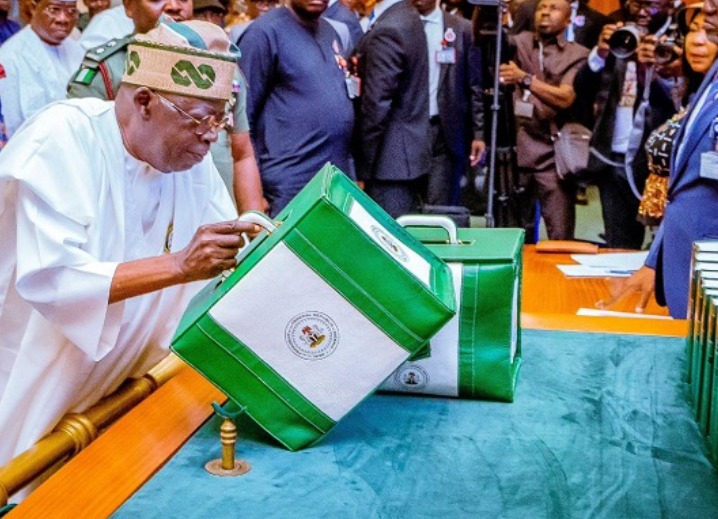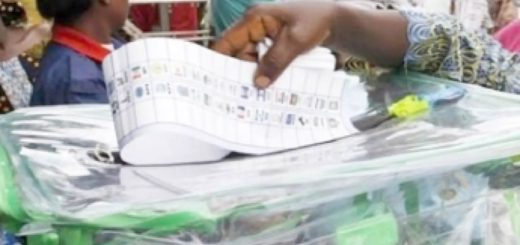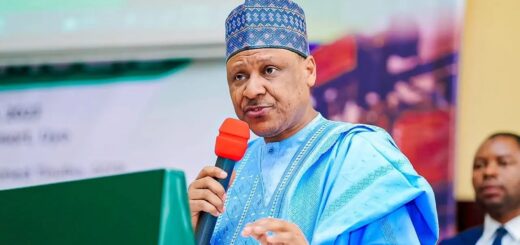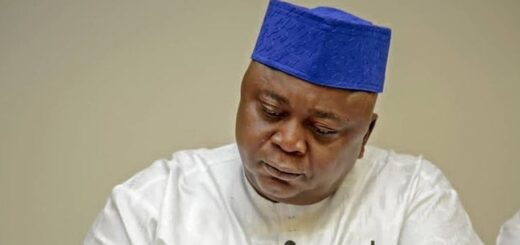LCCI, ASBON, analysts, others pick holes in 2025 budget
 LAGOS — The Federal government’s proposed 2025 budget has come under attack by industry groups and analysts who expressed disappointment over the assumptions, benchmarks and figures in the budget.
LAGOS — The Federal government’s proposed 2025 budget has come under attack by industry groups and analysts who expressed disappointment over the assumptions, benchmarks and figures in the budget.
The Lagos Chamber of Commerce and Industry, LCCI, faulted the key parameters and assumptions on which the proposed 2025 budget was based, saying they are too optimistic in the face of current realities.
In a statement yesterday, the Director General of LCCI, Dr Chinyere Almona, said the assumptions of an exchange rate of N1,400 per dollar and an inflation rate of 15.8 per cent, in particular, are unrealistic.
Her words: “A review of the key parameters and assumptions on which the 2025 budget is being proposed appears to be too optimistic in the face of current realities as recorded in the economic and social indicators. “Particularly, the assumption of an exchange rate at N1,400 is too fragile to work with against the current average of above N1,600 to a Dollar in both the official and parallel markets.
“Assuming an inflation rate at 15.8 per cent does not reflect the unabating factors pushing up both the headline and food inflation.
“With inflation rising to 33.88 per cent as of October 2024, it is unrealistic to assume a steep 51 percentage point crash within a year.
“Since the current challenging economic conditions are mostly fueled by the inflation rate and the exchange rate, we advise the government to reconsider the over-ambitious assumptions for the 2025 federal budget.”
Almona further stated that creating an enabling business environment and clarity of policy direction are critical to achieving projected economic growth.
‘Fiscal discipline needed’
She called on the Federal Government to sustain fiscal discipline by complying with the Fiscal Responsibility Act in budget management and borrowing.
“Beyond the assumptions and projections, the creation of an enabling environment for the private sector to thrive, and clarity of policy direction in the economy are critical to achieving the projected growth rate of our Gross Domestic Product (GDP) in 2025.
“Further breakdown indicates that debt services are proposed to increase by 91.2% to N15.38 trillion, which is equivalent to 32.1% of the total budget. This appears to be unsustainable. The situation is further worsened with the projected deficit at N13.08 trillion and new borrowings of N9.22 trillion.
“With Federal Ggovernment debt already at about N134 trillion as of June 2024, inflation reaching a new high of 33.88 per cent as of October, and businesses burdened with a high Monetary Policy Rate at 27.25 perc ent, the Federal Government has a narrow bridge to navigate choices of policy options.
“We urge the Central Bank of Nigeria to sustain its Ways and Means Advances to the Federal Government at a five percent limit for the fiscal years 2024-2025. The Federal Government should sustain fiscal discipline by complying with the Fiscal Responsibility Act in budget management and borrowing,” the LCCI DG added.
It’ll take a magic wand- ASBON
Speaking to Vanguard on the viability of the budget, President of the Association of Small Business Owners of Nigeria, ASBON, Dr Femi Egbesola, said it will take a magic wand to make the budget happen based on its assumptions.
He stated: “While proposing this expectation are laudable, the current economic dynamics do not suggest this.
“If this will be achievable by 2025, then we should have been seeing the impacts of the current fiscal policies supporting these figures by now, but I am afraid to say that the current realities are far from these expectations. It will take a magic wand to make this happen.”
Need for caution on oil price benchmark
Also speaking a Port Harcourt-based energy analyst, Dr. Bala Zakka, said: “Oil market is very volatile and absolute caution should be taken in the process of taking the benchmark price for the 2025 budget.”
On output, he said: “The Federal Government said it is currently producing 1.8 million barrels per day, including condensate. Like in the case of price, adequate caution should also be taken here. I strongly believe that stakeholders, including the government and investors should work harder to further increase the nation’s capacity to produce oil and gas.”
Zakka also expressed discomfort with the projections of the budget on the Gross Domestic Product, GDP.
He stated: “The Gross Domestic Product, GDP, is all about the production of goods and services in an economy. With constant power supply disruptions, it has not been possible for households and businesses to participate in the economy. It is very doubtful if they will be able to increase investment to produce goods and services in 2025.”
Funding’ll be a challenge — Olayinka
However, reacting to the proposed 2025 budget, Tajudeen Olayinka, investment banker and stockbroker stated: “I think the 2025 budget proposal cannot be said to be ambitious. At least the figures do not attest to that assertion. N47.9 trillion proposed expenditure in 2025 may not be able to fund all the line item listed in 2024 budget if those items are considered for execution in 2025.
“Nominal value of money as a way of valuation can obliterate spending power of money, and that’s why real value of money should be considered when analysing the budgets or spending power of money. Money is what money can buy. So, N47.9 trillion proposed expenditure in 2025 is a clear indication of current disturbing trend in inflationary pressure and money illusion. The estimate is not ambitious.”
Continuing, he said: “ $/N1,400 in the proposal is just a metric for computing non-Naira cash flow components of the budget. It is also possible that government dreams to have a small appreciation in the value of the Naira in 2025 which is not too difficult to achieve if they collectively agree to run the economy with the best of skills. ‘‘Government should get a lot more serious in the way they are running the adjustment programme. The reason inflation is spiraling out of control is that the economy is failing to adjust properly.
“$75 oil benchmark is subject to how issues around the geopolitical tension are dealt with. Trade tension between the United States and China on the one hand and the lingering crisis in the Middle East and Iran’s connection on the other hand could make crude oil prices range between $65 and $85 for most of 2025. $75 benchmark could just be an adjusting average for the 2025 Nigerian budget.
‘However, oil production of 2.06 mbd could only be achieved if more local players are encouraged to take over onshore oil facilities in the country, as we had recently with Seplat and Oando taking over Mobil and Agip onshore facilities respectively. ‘‘4.6% growth target may be unrealistic for now, given all the headwinds against local manufacturing and export.”













